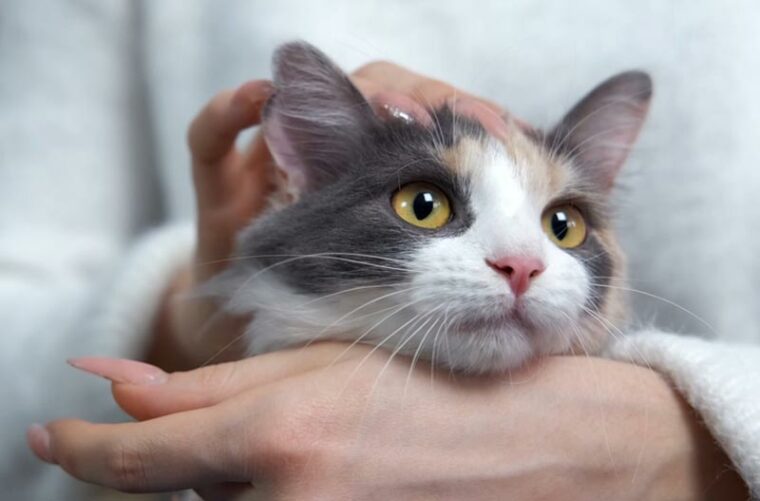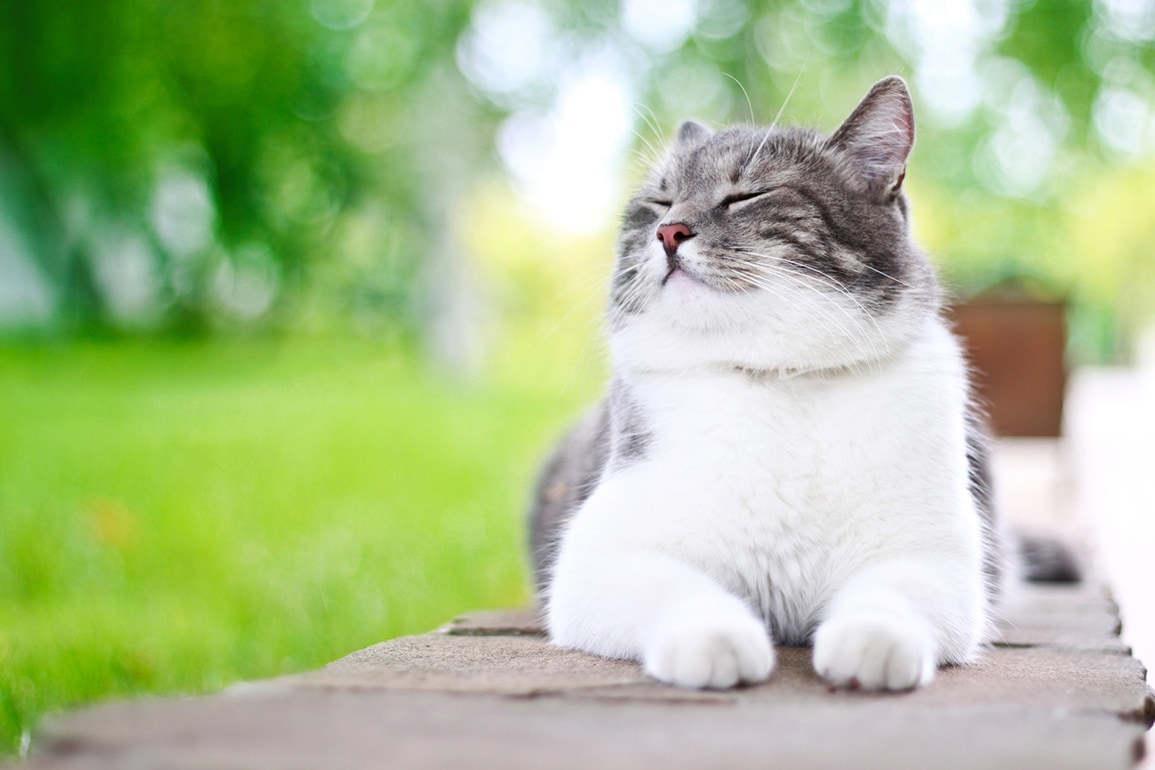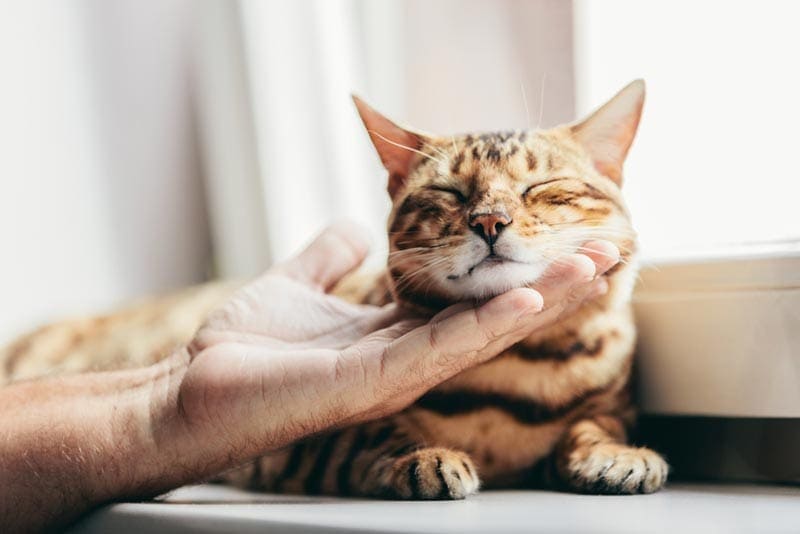
Cats purr for all sorts of different reasons. While cats do purr when in contact with humans, they can purr for other reasons, too. For instance, cats will purr when in contact with other felines. They may purr when they are content and by themselves. Some may purr when eating, and others may purr when playing.
Many cats also purr when sick or in pain, as purring helps relieve pain and anxiety—so purring is not always a good thing.
Cats purred before they were domesticated by people. Wild cats that aren’t domesticated by people at all also purr. Therefore, it’s pretty clear cats don’t just purr for a human’s credit. Purring is innate for cats.

The 3 Different Types of Purrs
There are many different types of purrs. In a lab setting, scientists can distinguish between these types of purrs due to their frequency. In other words, they sound different. While you may not be able to tell these differences in your cat’s purr, scientists can use this slight difference to identify the reasons cat purrs.
1. Communication with Humans
Indeed, some purrs and meows are solely for communicating with people. We find these purrs only in domesticated cats and only when they are around people. These purrs are high-pitched and have about the same frequency as a baby crying. Humans are biologically primed to react to a baby’s cry. Over hundreds of years of evolution, cats have taken advantage of this by mimicking a baby’s cry.
Therefore, the “ahh” factor that humans often feel when a cat purrs comes from this bit of biology.

2. To Promote Healing
Cats may purr to promote healing. We know that cats often purr when they are sick or not feeling well. When cats are in these vulnerable positions, it only makes sense to purr if helpful. Therefore, there must be some reason behind this purring.
Scientists have discovered that cats purr at a frequency that may promote bone growth. Therefore, when they have broken bones, it makes sense to purr. Other studies have found that vibrating plates may help with bone density.
3. For Relaxation
Cats also purr when they are stressed in an attempt to become unstressed. Cats often purr when they are relaxed and content, but it seems that purring also works as stress relief. Therefore, cats may purr even when they aren’t content.
However, this type of purring is less common. We do know that cats often purr when in pain, but this may have more to do with the above reason than due to anxiety. It’s hard to tell, and we can’t exactly ask our felines.


Why Does My Cat Only Purr for Me?
Some cats purr all the time. Others don’t purr much at all. Many cats may be heavily attached to one or two people. It isn’t odd for cats to pick their favorite person out of the family and attach mostly to them. This does depend a bit on the breed—certain cat breeds are more likely to be one-person cats than others. (And the same can be said for dog breeds.)
In these cases, you may only hear your cat purr when they are with “their” person. However, while these cats may rarely purr for others, it is still possible.
You shouldn’t be worried if your cat only purrs for one person, two people, or not at all. A cat’s temperament will determine when they are likely to purr and when they are not. Some cats may purr more often than others.
Do Cats Purr Because They Like You?
Cats can purr for many different reasons. Often, they purr because of contentment and so some cats will purr because they like you. However, just because a cat likes you doesn’t mean it will always purr. Sometimes, cats may not purr very much, including with people they like being around. However, cats are likely not to purr if they are around someone they don’t like.
Just because a cat purrs while on your lap doesn’t necessarily mean they are content (though it often does). Cats can also purr when anxious. Purring is a natural source of anxiety relief, so cats will purr when stressed or in pain.
Contentment and friendship are one of the reasons cats purr. However, it is not the only reason.

Why Does My Cat Purr When I Don’t Pet Her?
Many people mistakenly believe that cats purr only when they are being petted. However, this isn’t the only time that cats purr. Some cats purr very often. They may purr simply because they are in the same room as you. Of course, some cats are the opposite and hardly ever purr—even when being petted. It all depends on the cat’s personality and temperament.
Cats often purr when stressed as purring is a form of natural stress relief. Cats do it when they feel relaxed and when they want to feel relaxed. Therefore, if your cat is purring but doesn’t seem content, then it may indicate that something is wrong.
As discussed earlier, cats will also sometimes purr when injured. Studies have found that purring may promote healing in some way. The purr is the same frequency used for treating bone growth, pain, and muscle strains in humans. Therefore, it may work for cats in the same way. Of course, we don’t know this for sure, but it is a good theory.

Conclusion
Cats purr for many different reasons. We know cats purr when humans are not around, and that undomesticated cat species purr too. Therefore, it doesn’t seem to be only for a human’s benefit. Cats purr when they are content, even when humans are not around. They may also purr to promote healing, as it isn’t odd for a cat to purr when sick or hurt.
Not many studies have been done on a cat’s purr. However, there are more and more studies coming out every year.
Featured Image Credit: Gadzick, Shutterstock





